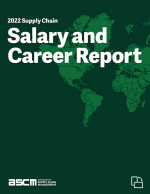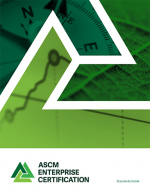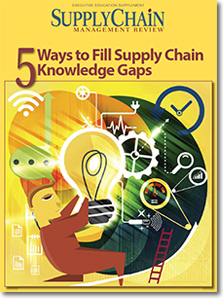5 Ways to Fill Supply Chain Knowledge Gaps
Is your organization suffering from supply chain knowledge and skillset gaps? Here are five strategies to get back on track.
1. Executive Supply Chain Education
It takes on different forms, all of them aimed at a similar goal: to bring existing employees and/or new graduates up to speed on the fine points of managing today’s complex supply chain. According to Kouvelis, executive education is targeted mainly at younger candidates that already have graduate degrees in other fields (business, economics, engineering, or math, for example).
2. Supply Chain Certifications
Through the professional certification process, individuals gain knowledge, experience, and skills to perform a specific job. When the coursework is completed the student must earn a passing grade on an exam that is accredited by an association or organization that oversees and upholds the standards for the industry in question.
3. Peer-to-Peer Mentoring and Cross-Generational Collaboration
In some cases, enhancing supply chain knowledge is a task that can be handled within the organization, where a goldmine of knowledge and hands-on experience lies within the existing workforce. “With the Baby Boomers heading into retirement, and with a high number of supply chain job positions to fill, we definitely need to be mentoring younger folks and driving leadership within supply chain positions,” says Lisa Angell, department chair and instructor of supply chain management at Fox Valley Technical College in Appleton, Wisconsin.
4. Cross Training and Job Rotation
Sometimes all of the education and certifications in the world can’t replace the hands-on experience that supply chain professionals gain from cross training on different jobs. “It gives individuals different perspectives on the supply chain,” says Abe Eshkenazi, CEO at Chicago-based APICS.
5. Partnering with Universities and Colleges
When developing coursework for its supply chain programs, Portland State University reaches out to area organizations to find out what skills and knowledge would help them operate more efficiently in today’s business world. “We’ve built out our curriculum around those needs,” says Cliff Allen, academic director at Portland State University in Portland, Oregon, who advises shippers to use a similar approach to partnering with their own local universities and/or colleges.
Download the article including a list of:
- Universities and Educational Institutions
- Professional Associations
- Private Firms
What’s Related




Favorites





